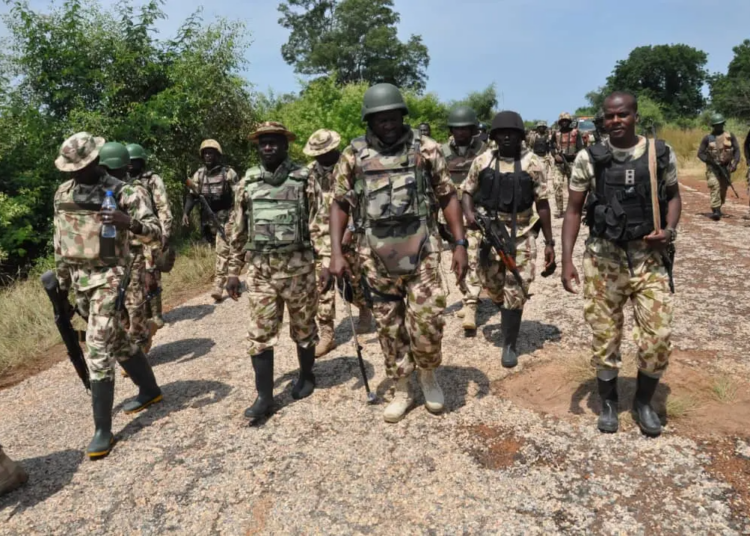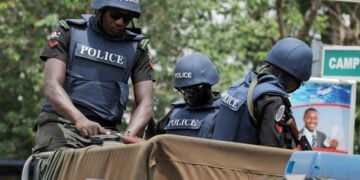Within the period spanning year 2024 and 2025, the African Sahel may have solidified its grim status as the world’s epicentre of terrorism. This accounts for over half of global terrorism-related deaths, 3,885 out of 7,555 in 2024 alone. This region, spanning Burkina Faso, Mali, and Niger among others, has seen a nearly tenfold surge in fatalities since 2019.
This is driven by jihadist groups like Jama’at Nusrat al-Islam wal-Muslimeen (JNIM) and Islamic State affiliates. Yet, this surge unfolds years after military coups in these nations, where juntas seized power citing rampant insecurity as justification. Far from stabilising the region, these takeovers have exacerbated violence, imposed draconian curbs on freedom of speech, and exposed the folly of soldiers abandoning their core security mandate to govern. The result? No better security, no better governance. Only a deepening cycle of instability that demands a re-evaluation of military rule’s viability in fragile states.
The coups began in Mali with back-to-back overthrows in 2020 and 2021, followed by Burkina Faso’s dual coups in 2022 and Niger’s in 2023. In each case, military leaders like Mali’s Assimi Goïta, Burkina Faso’s Ibrahim Traoré, and Niger’s Abdourahamane Tchiani framed their actions as necessary to combat terrorism and restore order. Traoré, for instance, promised to eradicate jihadist threats that had displaced millions and crippled economies. Yet, data from the Global Terrorism Index (GTI) 2025 paints a starkly different picture. Burkina Faso remained the most terrorism-affected country in 2024 for the second year, responsible for one-fifth of global deaths, with fatalities rising 68 per cent to 1,907 in 2023 alone. Niger saw a 94 per cent spike in terrorism deaths to 930 in 2024, the largest global increase, while Mali’s jihadist groups doubled their territorial control post-coups. By mid-2025, JNIM claimed at least 280 attacks in Burkina Faso, doubling the previous year’s tally for the same period.
This escalation stems from multiple failures. The juntas’ pivot from Western partners like France and the US to alternative international alliances has yielded little beyond scorched-earth tactics that alienate communities and fuel recruitment for extremists. In Mali, the withdrawal of UN forces in 2023 created a vacuum exploited by JNIM and Islamic State-Sahel Province (ISSP), leading to urban sieges and expanded shadow governance.
Burkina Faso’s government now controls only 60 per cent of its territory, with jihadists imposing taxes, administering their own justice systems, and integrating into local economies through illicit activities like gold mining and drug trafficking. These groups sustain themselves via kidnappings, surging from 78 in 2017 to over 1,000 in 2023, and cattle rustling, blending terrorism with organised crime. The Alliance of Sahel States (AES), formed by the three juntas in 2024, promised joint counterterrorism but has weakened regional cooperation, isolating them from ECOWAS and fuelling border vulnerabilities.
Compounding this is the erosion of freedoms. Post-coup regimes have enacted draconian laws stifling dissent, ostensibly to maintain order but effectively silencing discussions on insecurity. In Niger, repression of free expression has intensified, with activists facing threats for criticising the junta’s security failures. Burkina Faso’s regime has curtailed media, labelling critics as terrorists and fostering a climate where human rights violations, including arbitrary arrests, go unchecked. Mali’s junta has similarly cracked down on protests and journalism, with counterterrorism operations leading to abuses that alienate populations and fuel extremists. This suppression not only muzzles amplification of governance grievances, like neglected ethnic tensions and ecological degradation, but also prevents constructive dialogue on solutions, perpetuating the very instability the coups claimed to address.
Globally, the Sahel’s plight contrasts sharply with regions like the Middle East, where terrorism deaths fell 7 per cent in 2024, or Sub-Saharan Africa outside the Sahel, which saw a 10 per cent drop to pre-2016 levels. The Sahel’s 51 per cent share of global fatalities in 2024 underscores how political instability, fuelled by coups, creates fertile ground for jihadism. This is a pattern echoed in historical cases like Afghanistan under Taliban resurgence or Somalia’s Al-Shabaab amid governance voids. International actors, including China and Iran, have exploited this, with foreign mercenaries conducting ineffective, abusive campaigns that mirror failures elsewhere. The UN and AU warn of spillover to coastal states like Benin and Togo, where attacks rose in 2024, threatening broader West African stability.
The core lesson is evident. The military is ill-equipped to govern while securing. By blending roles, juntas have diluted focus, leading to “professional unpreparedness” and worsened optics on the ground. Insecurity has not abated. Instead, it has ballooned, displacing millions and crippling economies reliant on resources like Niger’s uranium, which supplies 25 per cent of Europe’s needs. Governance suffers too, with anti-imperial rhetoric masking failures in people-centred policies, fostering “choicelessness” that drives recruitment into militant groups.
Regional bodies like ECOWAS must re-engage to break this cycle, pushing for civilian transitions and transparent elections. International partners should condition aid on human rights reforms, bolstering community-led initiatives over militarised responses. Domestically, juntas must relinquish power, allowing specialised governance to address root causes like poverty and climate stress. The Sahel’s tragedy is a cautionary tale. When soldiers govern, neither security nor state purpose thrives. For 2025 and beyond, restoring democratic accountability is paramount, lest the region remain a global terrorism hotspot, its people paying the ultimate price.





